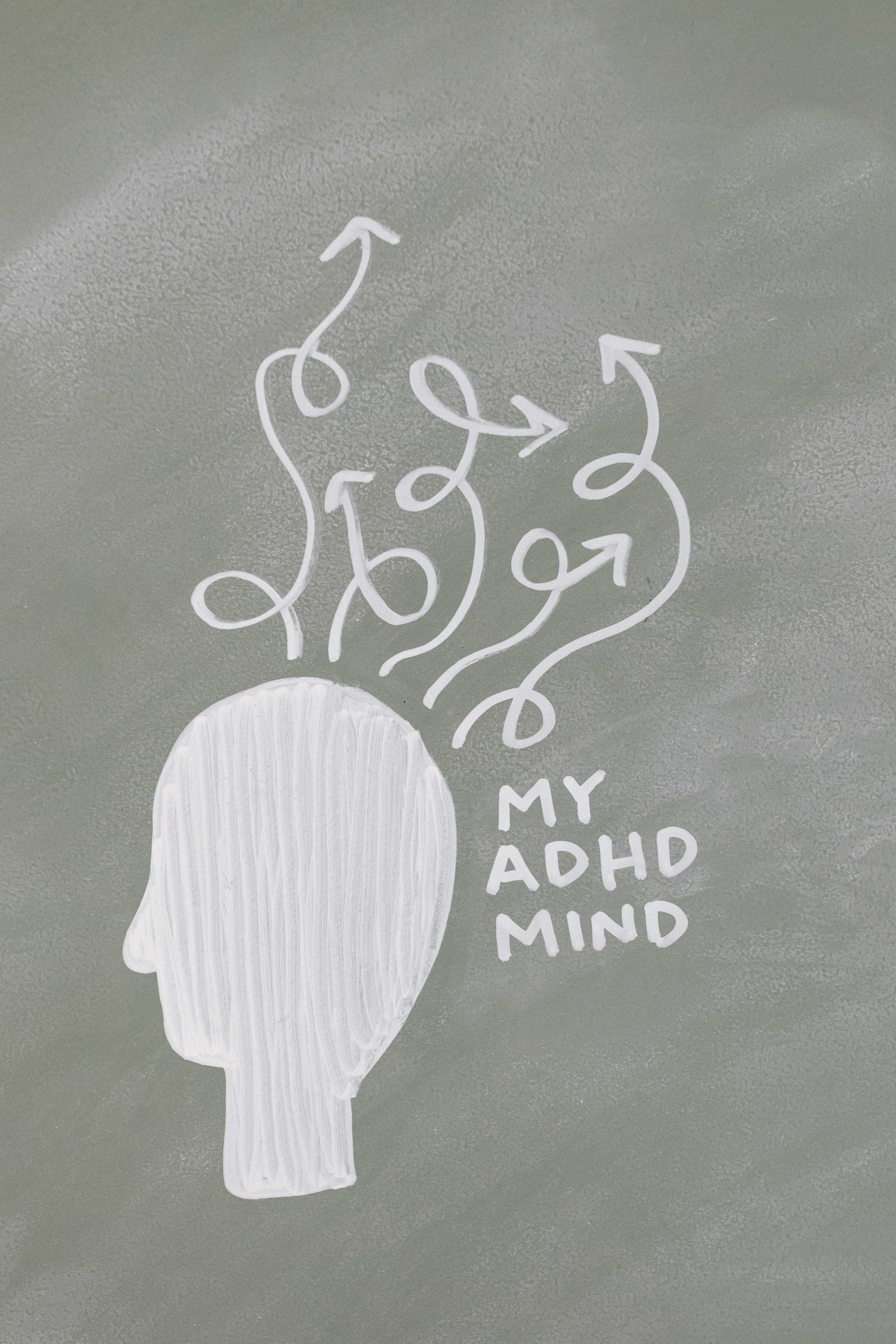
.

Introduction: Attention Deficit Disorder (ADD) and Attention Deficit Hyperactivity Disorder (ADHD) have long been subjects of discussion, sometimes used interchangeably, leading to confusion about their distinctions but if we look at it factually then according to the last updated DSM-5 "ADD" is no longer a diagnosis which doctors use. This in-depth exploration aims to unravel the intricacies of these neurodevelopmental disorders, shedding light on their differences and highlighting the common threads that bind them.
In mental health, ADD typically refers to Attention Deficit Disorder, a subtype of ADHD characterized by symptoms of inattention without hyperactivity or impulsivity. It can cause difficulties in maintaining focus, organizing tasks, and following through on responsibilities, impacting various aspects of life. While ADD is still used colloquially, clinicians now diagnose it under the broader term ADHD. Treatment may involve behavioral interventions, psychoeducation, lifestyle modifications, and medication.
1. Historical Perspective:
- ADD, historically considered a distinct condition, has seen a shift in terminology. The Diagnostic and Statistical Manual of Mental Disorders, Fifth Edition, now includes it under the umbrella of ADHD, specifically as the predominantly inattentive presentation.
2. Primary Characteristics of ADD:
- Inattention: Individuals with ADD predominantly struggle with sustaining attention, often making careless mistakes and having difficulty organizing tasks.
- Cognitive Drift: A hallmark feature is a propensity for excessive daydreaming and becoming easily distracted by unrelated thoughts or stimuli.
- Forgetfulness: Forgetfulness, encompassing both short-term and long-term memory lapses, is a common challenge.
"The most recent edition of the DSM merged the subtypes of ADHD into one overarching diagnosis, with specifiers indicating the predominant symptom presentation: predominantly inattentive presentation, predominantly hyperactive-impulsive presentation, or combined presentation. The term "ADD" is no longer used in official diagnostiNote:c criteria, and all individuals with symptoms of inattention, hyperactivity, and impulsivity are diagnosed under the ADHD umbrella."
ADHD stands for Attention Deficit Hyperactivity Disorder, a neurodevelopmental disorder characterized by symptoms of inattention, hyperactivity, and impulsivity. It can affect individuals across various settings, leading to challenges in academic, occupational, and social functioning. Treatment typically involves a combination of behavioral therapy, medication, and support strategies tailored to individual needs..ADHD is a spectrum disorder with three subtypes: predominantly inattentive presentation, predominantly hyperactive-impulsive presentation, and combined presentation.
1. Predominantly Inattentive Presentation:
- Similar to ADD: Shares similarities with traditional ADD, characterized by difficulties in sustaining attention, organizing activities, and forgetfulness.
- Differences: The term "ADD" is no longer used in official diagnostic criteria; instead, individuals with predominantly inattentive ADHD are diagnosed under the ADHD umbrella.
2. Predominantly Hyperactive-Impulsive Presentation:
- Hyperactivity: This subtype involves excessive physical activity, fidgeting, and restlessness.
- Impulsivity: Impulsive behaviors, such as acting without thinking, interrupting others, and difficulty waiting, are prevalent.
3. Combined Presentation:
- Mixture of Symptoms: Individuals with the combined presentation experience a blend of inattentive, hyperactive, and impulsive symptoms.
1. Inattention and Executive Functioning:
- Executive Function Challenges: Both ADD and ADHD commonly manifest challenges in executive functions, such as planning, organizing, initiating tasks, and maintaining focus.
- Daily Impact: Difficulties in these areas often result in struggles with academic, occupational, and social functioning.
2. Neurobiological Basis:
- Common Neural Pathways: Research suggests that both conditions share underlying neural mechanisms related to the regulation of attention, dopamine pathways, and the prefrontal cortex.
1. Hyperactivity-Impulsivity Distinction:
- Exclusive to ADHD: The presence of hyperactive and impulsive symptoms distinguishes ADHD from the inattentive presentation.
2. Diagnostic Terminology:
- Unified Terminology: The current diagnostic landscape unifies these conditions under the ADHD umbrella, emphasizing the spectrum nature of the disorders.
3. Treatment Approaches:
- Tailored Interventions: While stimulant medications, behavioral therapy, and lifestyle interventions are common strategies for both, the specific treatment plan may vary based on the predominant symptoms.
In conclusion, the journey through the landscape of ADD and ADHD unveils a spectrum of neurodivergence, where inattention, hyperactivity, and impulsivity form a complex interplay. The shift from ADD to the inclusive terminology of ADHD reflects a nuanced understanding of these conditions. As we strive for greater awareness, accurate diagnosis, and personalized interventions, embracing the diversity within the ADHD spectrum becomes essential for fostering a supportive and inclusive environment.

We have some of the best doctors and therepists on our panel. We are here to provide the best care for you. Although we may not be always perfect, but we strive to provide the best care and experience to our patients.
We are in network with most major insurance providers in California. If you do not see your insurance provider here, please call us. We may still be able to serve you. All our providers can provide services on cash basis as well. NOTE: Our naturopathy services are not covered by any insurance, and is a cash only service.